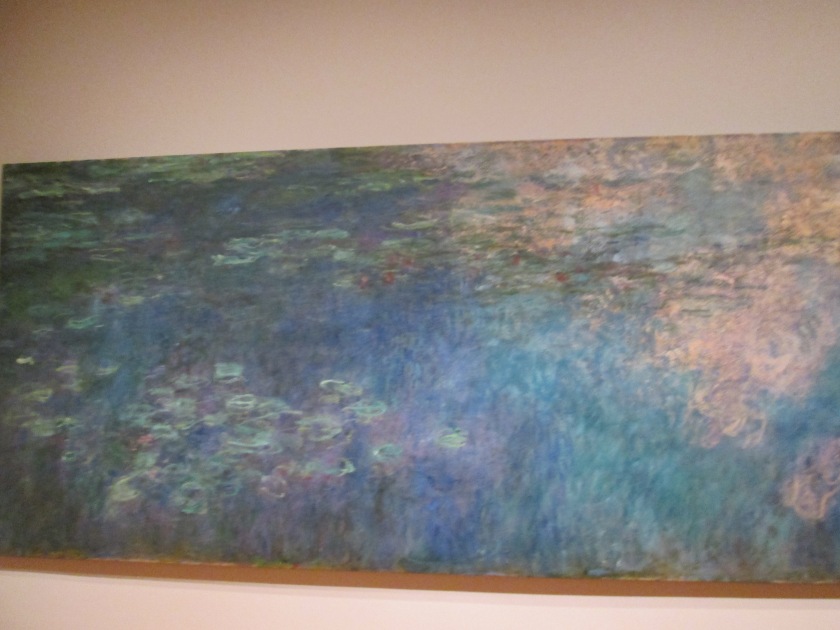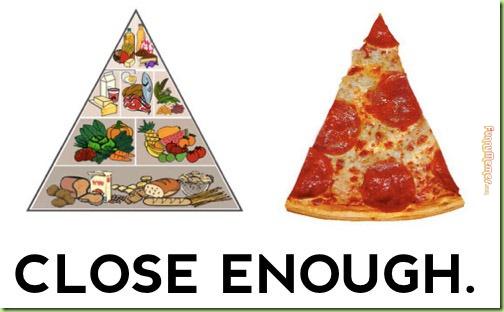We’ve referenced the important of having a budget under multiple occasions: link, link, link. A budget is not to limit you, but to shed light on some areas of your spending. You may be shocked at the results. A budget serves to show where you are as far as savings/net worth as compared to where you want to be, should be, or need to be based on your goals.
We figured it would be fun to detail what you should probably include as the basic necessities in your budget, along with unveiling the ridiculousness of the WinningWilliams “budget” which contains over 20 tabs in an Excel worksheet!
Many people use YNAB and find great value, but basic Excel skills, result in a free option for maintaining your budget.
Minimum Budget Needs:
- Your “Income Statement” tab. This is the breakdown of all your EXPECTED sources of income, expenses, and then (better be) leftover savings. Note: your ACTUAL expenses will likely differ. See the next bullet/tab to understand how much to allocate to expenses.
- Income – detail all sources of cash coming in – salary, bonus, side projects, investment income, rental income, etc.
- Expenses – again detail ALL EXPECTED items, even items such as taxes (if you didn’t use after-tax income above), health insurance, and everything in between. Also, you should be included reserves of big-ticket items such as car maintenance and future car purchase savings (since you will never finance a car purchase by the way), home maintenance, property insurance, taxes, etc. Some expenses do not occur every month (or whatever time-period you are using), but should be accounted for as they will occur at some point into the future. In accounting this is an accrual. Fun fact.
- Savings – whether 401K / IRAs / traditional savings account. This is the amount left over subtracting all expenses (and accruals) from your income sources.
- Expense Tracking tab. This is crucial for those starting out. You MUST track and categorize all expenses for several months to get an idea of how much you are spending. There are likely several items you had no idea how expensive certain recurring costs were. Make sure your actual expenses you are tracking then match up with your expected expenses on the income statement tab.
- Net Worth tab. This shows at a point in time (perhaps end of month or end of quarter) how much you have saved in each of your accounts. Those with debt should also list how much debt is outstanding and aggressively eliminate it as soon as possible. Take your savings accounts, investment accounts, and subtract all outstanding debt to arrive at your net worth.
That’s it for a basic budget: you’re tracking where your actual spending is going, how much you are saving, and how much you have saved for rainy day funds, retirement, etc.
The WinningWilliams Budget:
This is what works for us, you don’t have to get this detailed unless you really want to. Many items don’t really relate to a budget, but they are continuously used and referenced items. Therefore the WinningWilliams budget is not only a financial revelation, but a life revelation… or something like that! Without further ado:
- Tab 1 – Financial start – shows credit score over time, when the last credit report was pulled, and how much social security is claiming they will pay me at various retirement ages. Credit Score is more important here! We use Credit Sesame for our monthly credit score approximation along with the formal annual credit report provided for free from the main credit bureaus (TransUnion, Experian, and Equifax).
- Tab 2 – Income Statement – Shows all of our income less HSA and 401K savings to arrive at our pre-tax earnings. We then subtract expected taxes and Roth IRA contributions to be our Net Income line. Our Net Income then subtracts our expenses (broken up into House related, rental expenses, general expenses, and other accruals). Those expenses are detailed so we can see where most of our expenses our going (38% house – rent, utilities, etc.), (12% rental/investment house – insurance, taxes, reserve accrual, HOA), (8% food – groceries and dining out), (9% health – health insurance and general expected health costs from doctor visits, etc.), (12% travel), (11% car –insurance, gas, tolls, maintenance, future car fund), and many smaller percentage items that make up the remaining 10%.
- Tab 3 – Tax planning – monitoring all of our income sources to verify our tax rate, MAGI (modified adjusted gross income), and make sure we are eligible for IRA contributions at the end of the year
- Tab 4 – Expense Tracking – We love this one. We track and categorize all expenses. The end of the month we can see where we ended up and if we need to make any changes to our spending habits. While it does take some time to input, by updating it frequently, it takes quick updates.
- Tab 5 – Net Worth – We break up our Net Worth into a few sections:
- Short-Term Accounts (savings accounts, checking accounts, online savings)
- Investment Accounts (what we have in our brokerage and HSA accounts), and
- Long-Term Accounts (401K and IRAs – Retirement Accounts).
- These total into our Net Worth. We also include estimated home equity to arrive at a secondary Net Worth calculation which includes the value of our home equity. (Note: we do not provide any value for car, furniture, or other assets. These are depreciating assets that won’t likely provide any material value to us. We also don’t have any debt, which is of course why we can have a blog called WinningWilliams ☺ )
- This tab also includes all accruals, yep those items that you save for that you will need to pay for in the future. We have accruals for car repairs and savings, home repair (including roof and future A/C fund), emergency fund, travel fund, and among others). These items are conservatively held in our Short-Term Accounts (primarily online savings). While this may serve to be overly cautious and result in a high-level of non-invested cash, these are all items that could come up and require cash-on-hand. We could be more aggressive, but have chosen the more conservative route.
- Tab 6 – Graphical tab – This shows our net worth (excluding home equity) per quarter. It also shows how much we would have to live on using the 4% rule if we retired today. Hello Ecuador retirement!!
- Tab 7 – Summary Tab – Originally established for a meeting with a financial advisor (relax, this was a free service offered by my credit union just to double check our thought processes). It is a more detailed look at our Net Worth including looking at where our retirement accounts are invested and where our asset allocation stands (excluding Cash it is 79% equity, 16% fixed income, 5% REITS).
- Tab 8 – Details our equity trading activity (purchase price, shares, etc.). It also shows potential ideas/indexes/etc. We will follow-up with more information on our investment strategy.
- Tab 9 – Asset Allocation 2– Yet another look at our asset allocation, but much more specific broken out and color coded between cash, fixed income (domestic, international, government, corporate), equity (domestic, international, small, mid, large, emerging, etc), real estate and commodity, and speculation.
- Tab 10 – Utility – Yep, we actually track what our electricity, water, and internet bill has been on average for the last several years. For 2015, our monthly average electricity spend was $54.09, water was $24.31, and internet was $54.43.
- Tab 11 – Credit card / travel hacking info – We took a class on travel hacking. This spreadsheet shows what cards we have open, closed, potential next applications, limits, bonus info, dates to consider closing. Since we know we will NEVER carry a balance and pay interest, we know there are significant value to sign-up bonuses and travel rewards. Just for reference, we’ve tracked related expenses of $174.25 with a rough value of $1,805. This does not include tens of thousands of additional points that will increase our value in the future. Side note, my credit score has increased since going through this process!
- Tab 12 – Travel Logins – This shows all of the reward information for all of the different airline and hotel programs and when any of the miles expire. Can’t have that!
- Tab 13 – Rental Income – This tab shows all income and expenses related to our rental property for tax purposes
- Tab 14 – Charity – As part of this New Year’s goal, every month we need to contribute to charity or give back in some way. This could be through a time commitment or monetary commitment. This is just a simple tracking log to ensure and hold us accountable that we contribute each month.
- Tab 15 – Blog ideas ☺
- Tab 16 – Book List – As others recommend books I add them to “the read” list. I’ve also started making notes on the books I’ve read and enjoyed the most so that I can revisit them at a later date. Also best book ever my Mrs. WinningWilliams
- Tab 17 – Birthday List – Why not have a nice reference for everybody’s birthday in a convenient location?!
- Tab 18 – Vehicle tracking – This tab tracks my car repairs, costs, mileage, etc. Could be helpful for resell, if that day ever comes ☺
- Tab 19 – Movie List – Tracks upcoming movies that we want to add to the library list when they become available. As previously mentioned, we are a huge proponent of our library system, they offer new movies as they are released on DVD and will even ship them to our local library for pick-up. Pretty darn close to Netflix, but for free (well, included in property taxes)!
- Tab 20 – Website Reference – As a travel lover, personal finance lover, blogger, there are many many great websites and great articles for reference. This categorizes some of the best articles for future reference.
- Tab 21 – Entertainment ideas – Breaks down a local to-do / to-visit list. This is primarily for us to be great hosts when we have friends and family in town. We can quickly reference the list for all sorts of potential ideas!
- Tab 22 – Local travel ideas – We also checked out one-tank trips from Tampa. It’s nice guide-book that lists off-the-beaten path locations to visit that are all supposed to be within one-tank of the Tampa, FL area. We did Tarpon Springs for New Year’s. Yay, sponges!
- Tab 23 – Travel summary – Starts our outside travel list, specifically summarizes where we’ve and key highlights from the trip (since 2011 – Washington D.C., Philadelphia, Las Vegas, New York City, New Orleans, Ft. Lauderdale, Miami, New York City (again), Costa Rica, Key West, Philadelphia (again), Italy, Nashville, New York City (again x2))
- Tab 24 – Our travel bucket list – This is definitely important for everyone to not only look at what is important for them to accomplish, but to start taking action to make them happen. We break things up by priority: 1) bucket list, 2) highly preferred, 3) Tier 2, 4) Other. Our bucket list has dwindled to Iceland and the Grand Canyon, but others are starting to creep their way up from the lower buckets!
- Tab 25 – Upcoming travel S.W. U.S. – As we travel plan, we save links, articles, expected costs, and any other relevant information onto tabs related to the destination. Tab 25 relates to our trip to the Southwest U.S. which will occur at the end of April and into May. An Epic 16-day journey traveling from Arizona, through Utah, and out of Colorado! Stay tuned for how we cut costs on this trip significantly.
- Tab 26 – Upcoming travel Iceland. Tab 25 and 26 makes sense for the aforementioned bucket list!
There are also more tabs that have been hidden or are completely irrelevant. If you somehow made it this far, CONGRATULATIONS! YOU ARE AWESOME! Now stop procrastinating and start your budget!













 Kayaks on Tampa Bay
Kayaks on Tampa Bay

